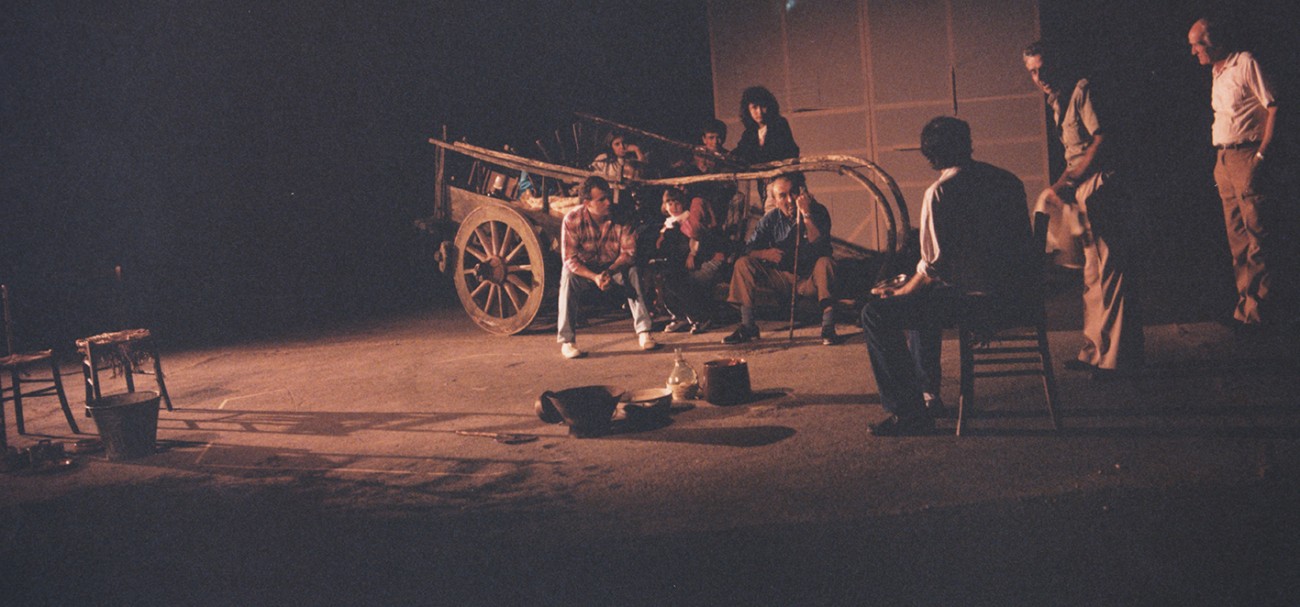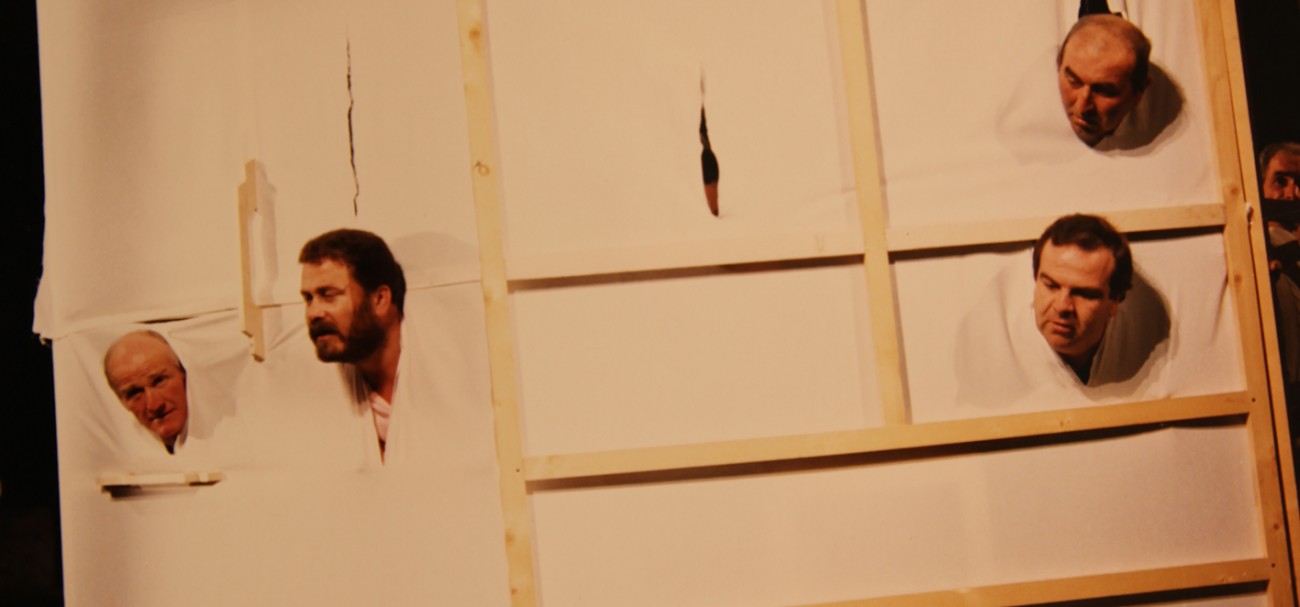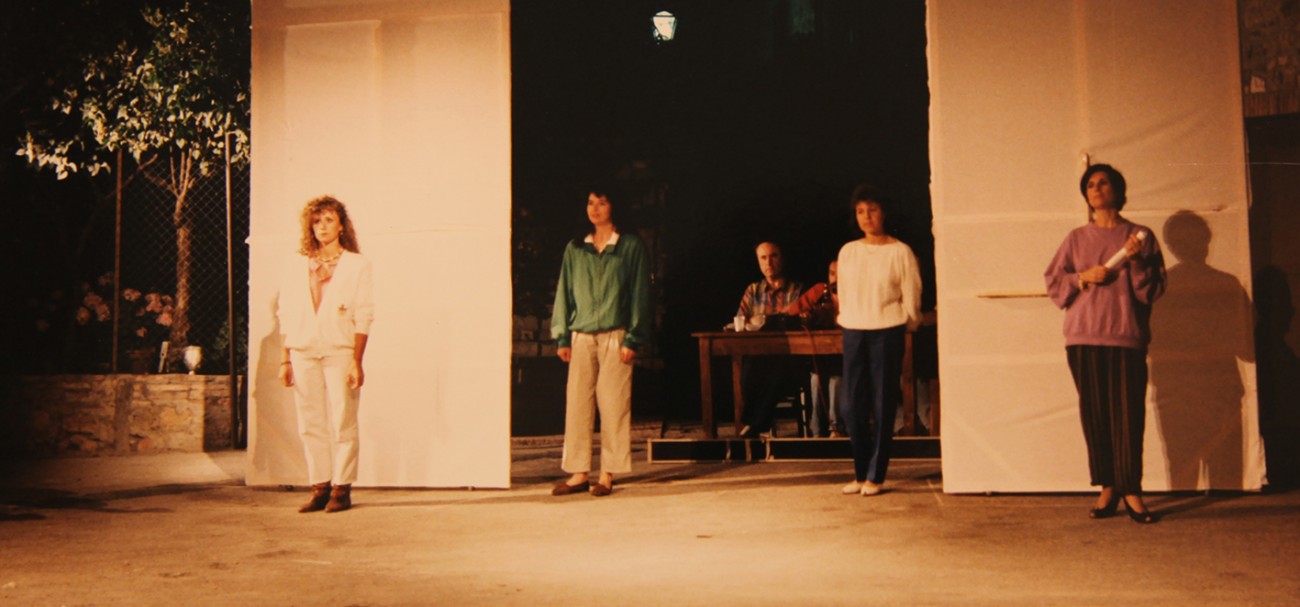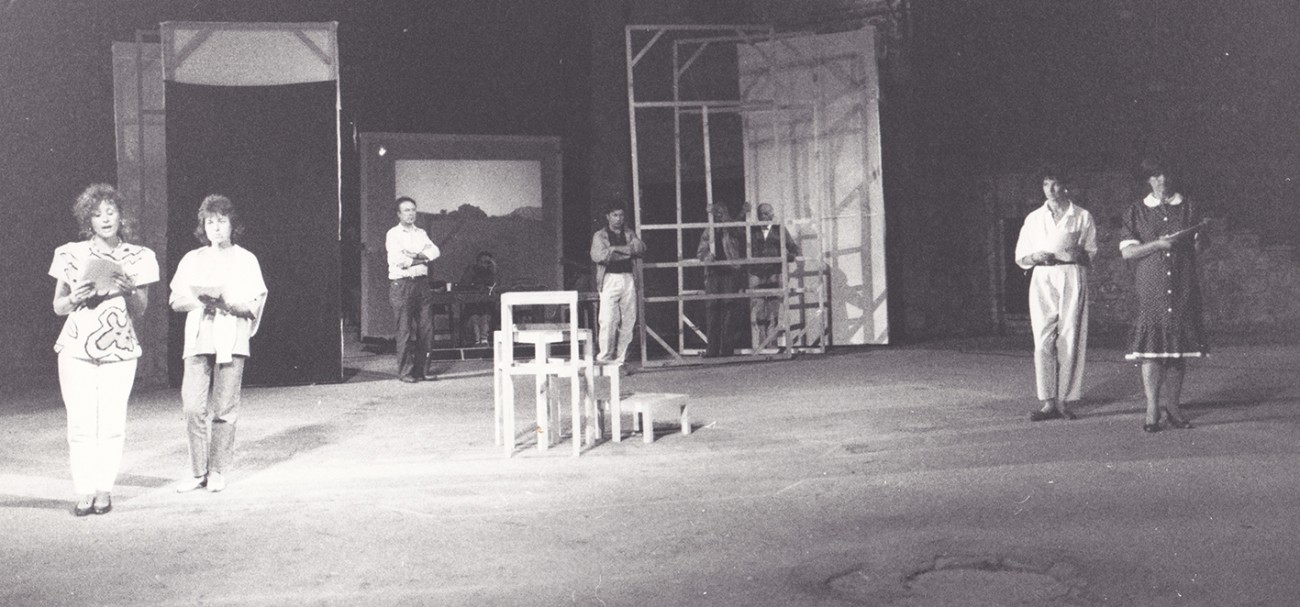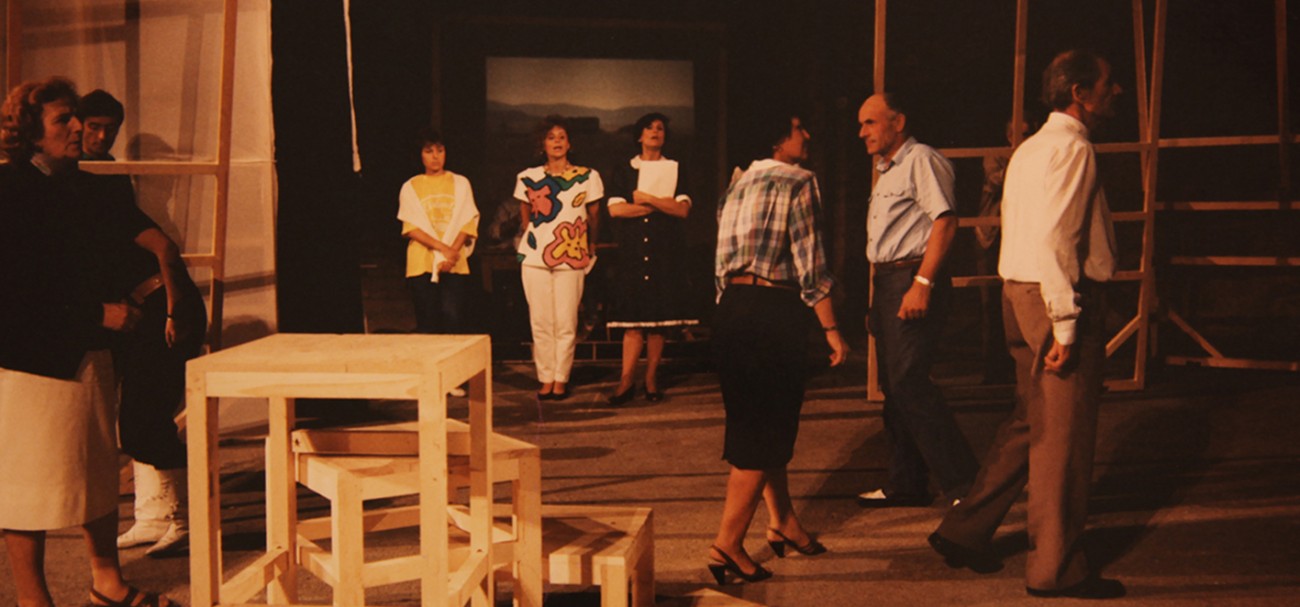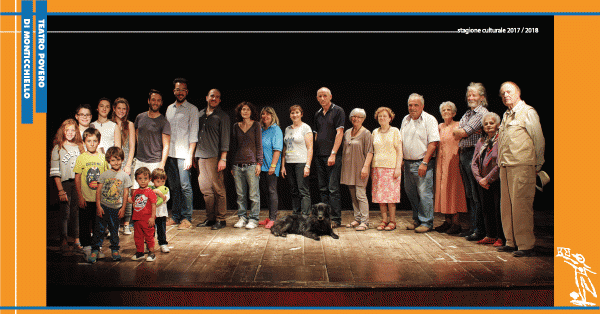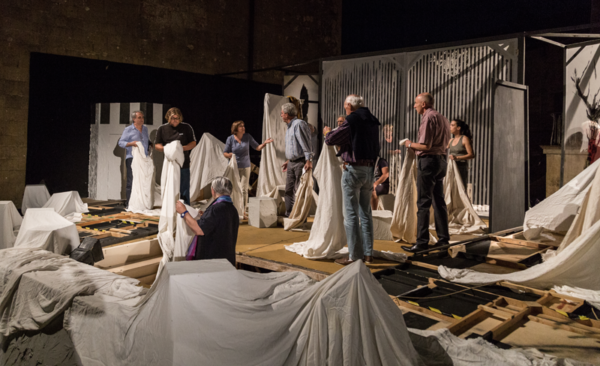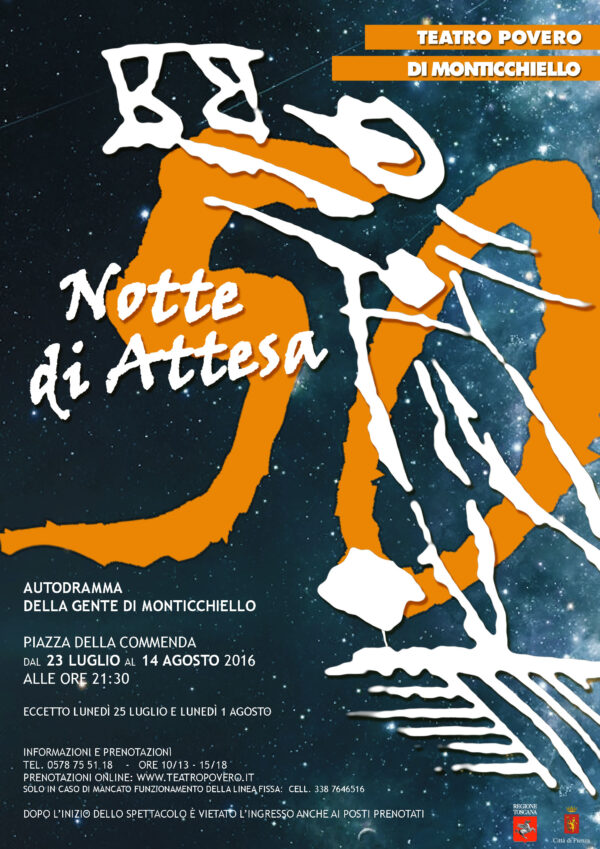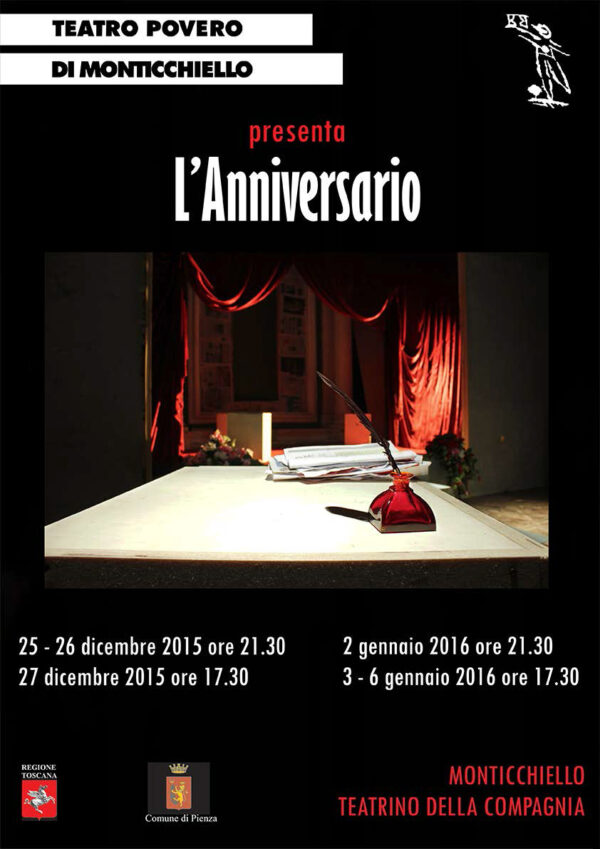‘Homesickness’—in this case ‘Farmsickness’. The podere, the separate farmhouse within which sharecropping peasants passed their lives, had been romanticized, perhaps, by Tuscan writers. For a peasant famili the podere was their home, but also their workplace, and even their prison. Now, in 1988, those houses were becoming abandoned, or sold off to provide second homes for rich people from outside. The response to this, on the part of those for whom a podere was full of memories both pleasant and unpleasant, was very ambiguous.
This autodramma might have turned into a political drama in the style of the 1960s. As usual, with a Teatro Povero show directed by Andrea Cresti, it was different and more complex. The podere was indeed a place of memory; but also now a place to be contemplated and exploited by ‘post-modern’ (or even ‘post-post-modern’) man.
We saw how, when new poderi were planned in the 18th century, they were based on scientific principles, but designed much more to benefit crops and animals (and therefore the profits made by the landlord) than to accommodate their human inhabitants.
We saw how a peasant family were finally able to sell their podere, when the sharecropping system dissoved in the 1960s. The departure and fragmentation of the peasant family took place in an atmosphere of fierce desire to reject their previous subjection to an oppressive system; with the resentment often being projected by one family member on another. But these feelings were also tinged with perplexity, and an inevitable attachment to an environment which had become so familiar.
We also saw a farcical project of selling off poderi (and everything else in Monticchiello) to the highest bidder. But in a futuristic theatrical coda, we saw how the new purchasers might turn into another generation of oppressive landlords, depriving the native community of access to their own land, and becoming a new class of modern feudal lords.


